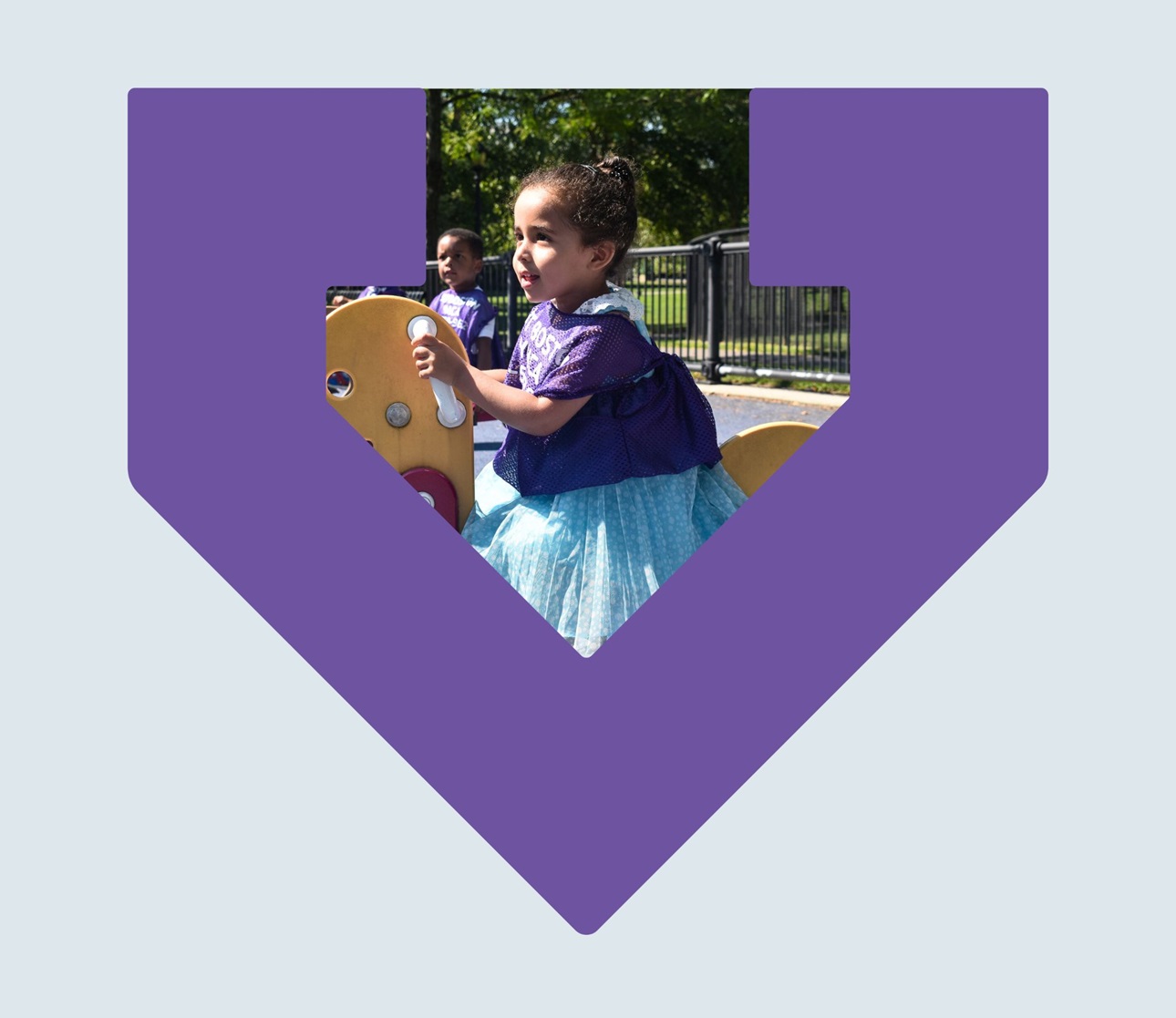
Child Well-Being
Our Vision:
Stronger and more equitable systems of early education and health care for young children and their parents and caregivers will ensure that children are physically and emotionally healthy, developmentally on track and well prepared to thrive in school and adulthood.
Our Work:
Child Well-Being remains grounded in these priorities:
• Embracing and elevating community voices and perspectives in advancing maternal health equity
• Collaborating with individuals and organizations that integrate physical, mental and behavioral health for children
• Strengthening systems, through research and advocacy, that center families’ well-being

In Focus: Maternal Health Equity
In this video from our series on our pathways to equity, Senior Program Officer Danubia Camargos Silva and Dr. Reneé Boynton-Jarrett, founder of Vital Village Networks, highlight the importance of a collaborative partnership around maternal health and child well-being that begins during pregnancy and continues through a child's formative years.
At a Glance:
Child Well-Being includes three focus areas:

Strengthening the Early Education and Care System
Advance high-quality early education and care through research, investments, advocacy and supports for early childhood and the childcare workforce.
This developing focus area pushes for reforms that will benefit families who need early education and care and the educators who provide it. Advancing high-quality childcare and early education systems requires coordinated action on multiple levels. We will begin by investing in research and advocacy to reform the childcare subsidy system and strengthen the workforce of family childcare providers.

Maternal Health Equity
Address racial disparities in access, quality and outcomes to create a more unified system of health services and social supports.
In a highly fragmented maternal health care field, this focus area will invest in the launch of a maternal health equity coalition that will equip community leaders who help coordinate efforts across health care and social service systems in Greater Boston.

Mental and Behavioral Health Integration
Provide comprehensive, integrated, family-centered mental health care from prenatal through early childhood, alongside physical health care.
Regular visits with a pediatrician are crucial for healthy child development. For adults, the visits are an entry point to building trust with providers and accessing services and resources in the health care system. Integrating mental and behavioral health into pediatric practice ensures that children receive a broader range of care, and families receive coordinated support that sets up their children for success.
Our Why:
A healthy life starts with healthy beginnings. By investing in an ecosystem of support, we can increase the chances of success for birthing people, babies, youth and all caring adults.
Families infuse rich traditions, cultures and histories into raising children. But when families navigate health care and early education in the U.S., they often run into systems that lack coordination. The complex web of care creates challenges—or results in no help—for adults who know their child’s needs best. These systems often devalue caring adults’ experience and expertise.
Disconnected, inaccessible and unaffordable services; confusing paperwork; ineffective organizations in the ecosystem; dropped referrals; and the limited use and sharing of data are just several challenges community members experience.
The effects of these gaps spill into adulthood, especially for communities of color. The rate of severe maternal morbidity―short- or long-term health problems from pregnancy or birth―for Black women doubled in the past decade compared to white women. And even though Massachusetts is one of the healthiest states in the country, racial and ethnic health inequities continue to worsen despite efforts to improve outcomes. At the same time, health care providers have disproportionately blamed parents and caregivers rather than identifying the root causes of inequity.
The COVID-19 pandemic intensified the need for mental and behavioral health care, but the high demand contributed to a shortage of health providers. Without providers, children have had little support during a critical time of their brain development. As research shows, the lack of access to care affects Black, Latino/a and low-income families the most.
High costs and underpaid workers also characterize the childcare system. The Commonwealth has the second most expensive childcare market in the country. Low-income families struggle to access subsidized childcare slots in a cumbersome system. Yet the average hourly pay for Massachusetts childcare workers remains low ($13, from 2016 to 2020).
For too long, early education and care have been a neglected field. Ninety-two percent of early childhood educators are women. More than half of them are women of color born outside the U.S. As a Boston Foundation report described last year, “[t]he early education and care system in Massachusetts is at a breaking point.”
The time to repair broken systems is now. Our Child Well-Being work recognizes the life stages of prenatal through early childhood as a vital time to build trust, relationships and systems with communities. Working together on community priorities in prenatal care, maternal health, postpartum care and child care will knit together a healthier and more equitable Boston and Commonwealth.
